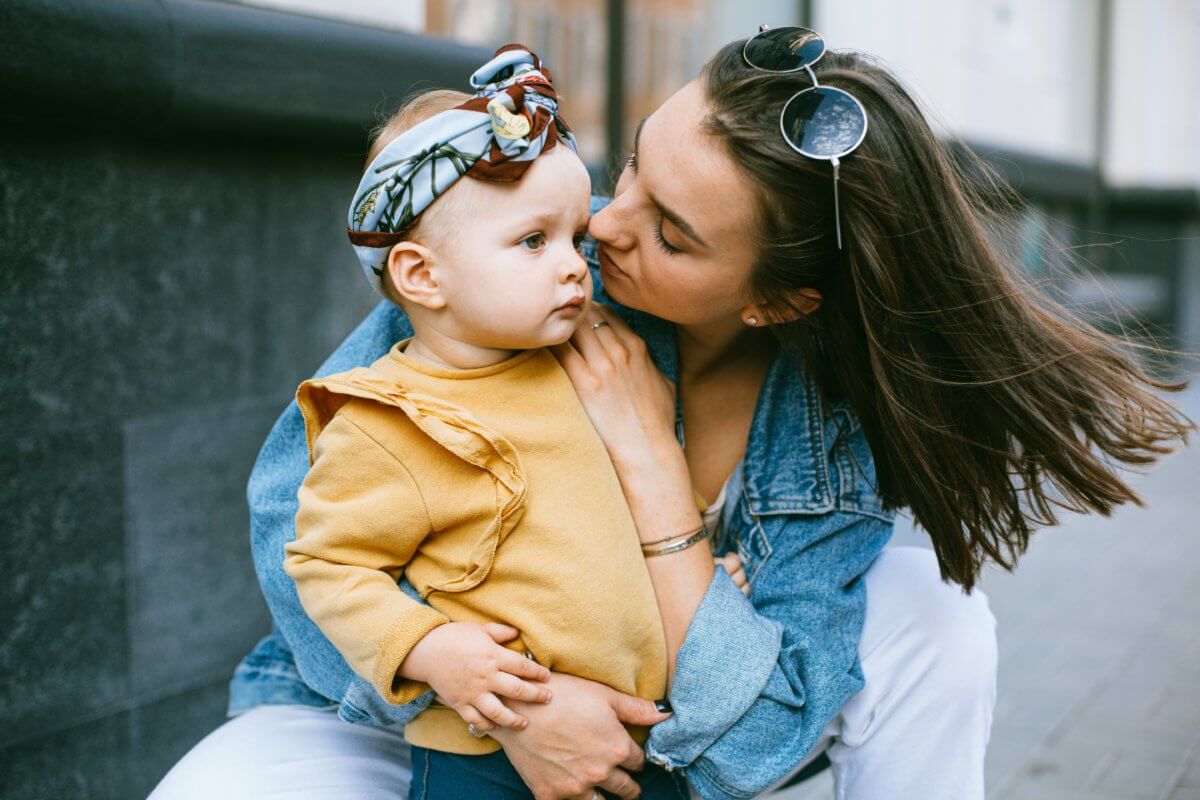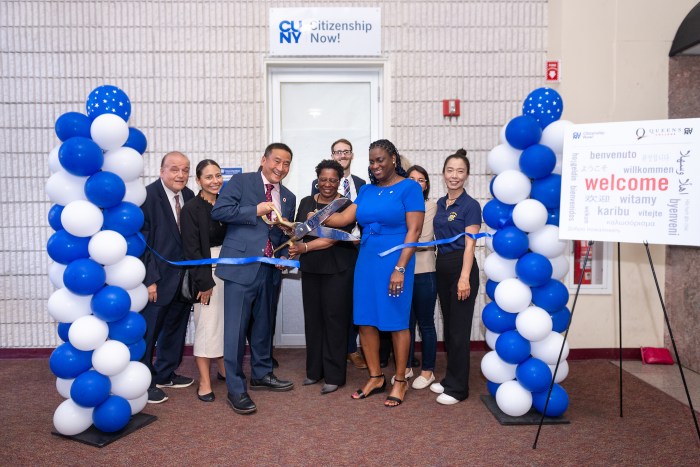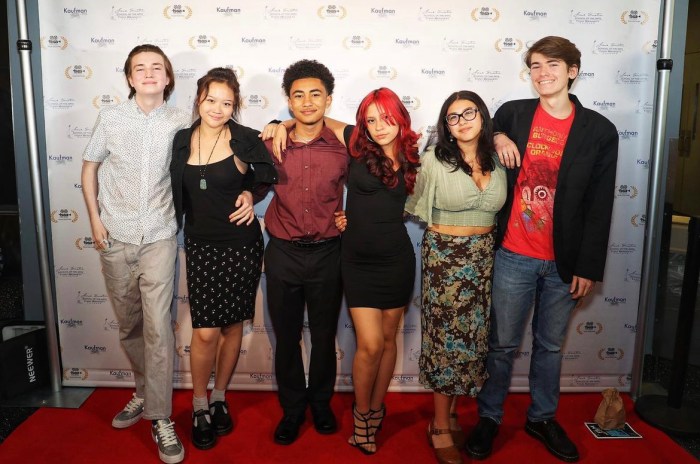By Cris Pearlstein
“Frankie, it’s time to clean up your blocks,” I said. “Can you put them back in the bin?”
She nodded while sucking her thumb, and began to do as I asked. A one-handed cleanup, on account of the thumb sucking, but eventually it was done. “Good girl!” I exclaimed.
A version of this exchange happens quite often lately since Frankie will be turning 2 years old very soon, and reinforcing good behavior is my daily M-O. As the person who spends the most time with her, it’s super important for me to remember that I have to capitalize on the hundreds of teachable moments we encounter every day. I want her to be a good person, someone who shares with her friends. I feel strongly that she should treat animals with kindness and wonder. I want her to learn to treat her things — toys, books and stuffies — with respect. And I also want to make sure she gets into the habit of cleaning up after herself.
This week she did a lot of things that made me proud. She gave our dog a sweet hug and patted his head. “Good girl, Frankie!” I said, making a big deal about how she was being gentle. She shockingly held my hand without complaint (something she rarely does) on our way home from the playground. When we got to our front door I knelt down and looked into her eyes, “You were such a good girl on the walk home!” And yesterday she said “please” and “thank you” without me having to remind her. “You are a very good girl for asking so nicely,” I told her, handing over the pretzels she was hoping for.
But I began to see a pattern. I wondered if my choice of words were actually a secret message I didn’t realize I was even sending. Is she taking away the idea that girls are only “good” if they follow directions? Will she think that the behaviors I’m praising her for are the only things that will make her “good”? And above all, is being a “good girl” an outdated expectation that her male counterparts don’t have to face?
Here’s the thing: there’s nothing wrong with being “good,” and there’s nothing wrong with being a “girl.” But putting those words together over and over again in the form of praise just seems a tiny bit dangerous to me. I want her to know that all people should strive to be good, not just girls. And I want her to know that as a girl there are many things to strive for, other than just being good.
A few weekends ago my husband and I went for a walk around our neighborhood, toddler and dog in tow. We were planning to pop into some shops and so we opted for the umbrella stroller, which has a much smaller footprint than the monstrosity I use every day. But its narrower seat means Frankie tends to spread her legs wide open and let her feet hang over the sides, oftentimes kicking the people and things around us — which defeats the purpose of choosing the smaller stroller in the first place. My husband, with only good intentions, said to her, “Close your legs Frankie, that’s not ladylike.” The gears in my brain immediately started turning. The word “ladylike” didn’t sit well with me. Should anyone sit with their legs sprawled out? Surely not. Isn’t it rude to take up an obnoxious amount of space in public, especially when you live in a city of close quarters? Yes, of course. This concept hadn’t occurred to me before, but it came out as if I had been thinking about it for days. “How about, it’s not humanlike?” I added. My husband, an incredibly smart and open-minded man, thought for a second and said, “Yeah, you’re right … humanlike,” as if the gears in his brain were turning, too.
According to Merriam Webster the definition of “feminism” is “the theory of the political, economic, and social equality of the sexes,” and I think if you asked most people they would say they agree with this sentiment — even if they don’t identify with the word itself, which can sometimes serve as a lightning rod for controversy. What I don’t think most people realize is that achieving this equality means more than passing laws. It means more than hiring more women in the workplace. It means more than electing women into office. I would argue that one of the most important paths to achieving true gender equality, whether you like the word “feminism” or not, is adjusting our language to reflect those values. It is a difficult task to reevaluate words and phrases we have been using for decades that seem normal, harmless and inoffensive. But we have to ask ourselves — especially when dealing with our children, who are nothing if not giant sponges — does the language we use on a daily basis undermine the philosophies we are trying to teach?
Frankie sleeps with six “friends” in her crib — every day before nap time and every night before bedtime I line them up and she takes a roll call. There’s Corn, a purple unicorn with wings; Boxy, a little white fox with a bushy tail; Bear, a soft ivory-colored bear with a floral bow; Sophie, a small labradoodle with an apricot coat; Girl, a handmade dog with a pink dress and a flower crown; and her favorite of them all, a classic brown teddy bear named, you guessed it, Teddy. These are the main characters of her life, that she named herself. They are the “people” we talk about a hundred times a day. I noticed early on that without even realizing it I assigned every one of them (along with every other toy she owns) the pronoun him, for no apparent reason. The stuffed dachshund my best friend sent me when I was still pregnant? Him. The cat figurine that came with the hand-me-down Duplos from sister-in-law? Him. The squeezable sea creatures in the bathtub, like Shark, Turtle, and Whale? Him, him and him. Unless it’s wearing a dress (like Girl) or it’s truly supposed to be a girl (like Sophie), I rely on he and him pronouns all the time. I don’t know why I do this and I don’t know why it’s so hard for me to stop.
The only thing I can come up with is that it’s difficult for me to undo a lifetime of gender stereotypes, patriarchal language and outdated assumptions that I’ve been conditioned to for the past 37 years. I have to imagine that just like quitting any long-time bad habit (like smoking cigarettes) changing the words you’ve used all your life requires hard work, too. But it’s the kind of thing that’s impossible to quit cold turkey because I don’t always realize I’m doing it, the words just come out. Undoing second nature feels like an impossible feat.
I went on a preschool tour recently where the director of the program used the phrase “thumbs up” to praise all of her students, boys and girls. I loved it and when I got home I immediately used it on Frankie. Now every time I say it she sticks her two little thumbs up and smiles. That feels like a small win.
Trying to break the decades-long cycle of patriarchal language is a huge undertaking, but I think for my family it will happen slowly, one neutral praise at a time. For now my goals are to leave enough wiggle room in our conversations for Frankie to decide on her own definition of what being a girl means to her, to replace “good girl” with “good job,” and to remember that whenever I tell her how cute she is (which is really, really often!) to balance it out by also telling her that she’s smart and strong.
This story was originally published on newyorkfamiy.com

































